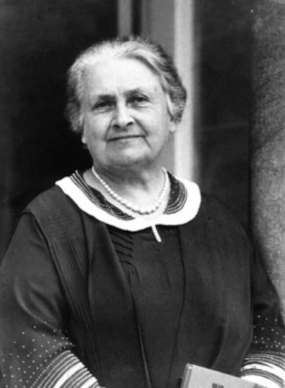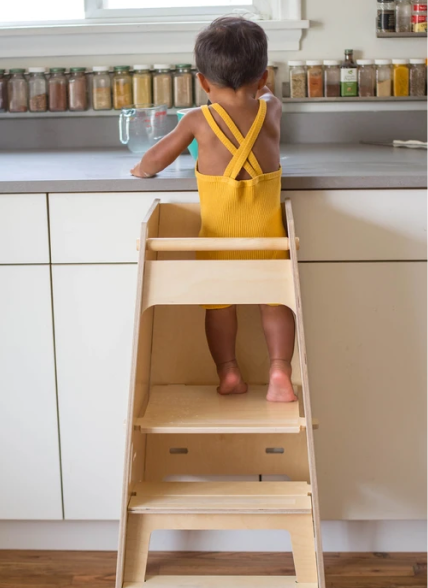The Montessori Method
Maria Montessori believed that first and foremost, children are human beings who deserve respect.
Adapted from Dutch biologist, Hugo de Vries, Maria Montessori applied this idea to human development. She observed that during certain developmental stages, children become more eager to practice specific activities in order to acquire new skills.
Maria Montessori found that children, in their need for sensorial stimulation and need for tangible manipulatives, must first be introduced to concrete ideas before they can understand them abstractly. For example, children will be given the quanity of numbers before they are given written mathematical equations.
In a Montessori home or classroom, the adult will prepare the environment for the child to access the materials they need in the developmental phase they are in. Maria Montessori taught that the prepared environment should be accessible, aesthetically pleasing, minimal, and developmentally appropriate.
Being a scientist, Dr. Montessori created her method through her observations. She taught that the first role of the teacher should be to observe. In respecting the needs of the child, teachers and parents will first observe the needs of each individual child and adapt their environment to support them.
Maria Montessori had a bigger goal in mind than just children who could work independently. Living through World Wars, she believed that children and an education are the hope for peace. Children are shown respect by the adults and are taught to collaborate, communicate, and resolve conflicts amongst their peers.
The Montessori Method puts children in the center of all learning. Children are given choices and the freedom to learn through the exploration of their environment.
It all started with Dr. Maria Montessori

Maria Montessori was born in August 1870 in Chiaravalle, Italy. She was the first woman to enter the Faculty of Medicine at the University of Rome and became one of the first female doctors in Italy. In 1897, she joined a research team at the psychiatric clinic of the University of Rome where she spent her time visiting Rome’s asylums for children. She observed children grabbing crumbs they found on the floor, and noticed that the bare rooms deprived the children of sensorial stimulation. In 1901, she started a second degree in education, experimental psychology, and anthropology from the University of Rome.
With all her work as a physician and all her observations and study in education, Dr. Montessori opened her first classroom. In 1907 the first Children’s House, called Casa dei Bambini, was opened to the impoverished children of Rome.
Dr. Montessori began training other teachers to use her method and schools began to spring up all over the world. She wrote the first of many books titled and translated, The Montessori Method. The Montessori Method spread all over the world and her philosophies are still relevant and used today.
Bringing the method home

The Montessori philosophy can be applied at home and at school. Whether you are a trained Montessori teacher or a parent who wants to use this philosophy in your parenting, educating ourselves as adults is the first step in bringing Montessori into our homes and classrooms. It is through deep respect for our children and students that we embark on this journey of self-preparedness! You can do this by reading books or blogs, listening to podcasts, or joining a group of like-minded adults. We've included some resources below that we have found helpful in our Montessori learning!
You can start to prepare your classroom or home to support the Montessori philosophy by setting up a space that is accessible to kids—child-sized furniture, open shelving so they can see their materials, and the opportunity to independently care for themselves and their environment. Every home and parent-child relationship is unique, and here at Sprout, we are here to support you and your parenting/teaching journey!









